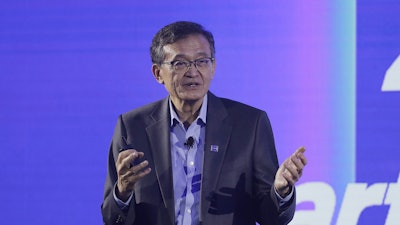
Shares of Intel slumped Thursday after President Donald Trump said in a social media post that the chipmaker's CEO needs to resign.
“The CEO of Intel is highly CONFLICTED and must resign, immediately,” Trump posted on Truth Social. “There is no other solution to this problem. Thank you for your attention to this problem!”
Trump made the post after Senator Tom Cotton sent a letter to Intel Chairman Frank Yeary expressing concern over CEO Lip-Bu Tan’s investments and ties to semiconductor firms that are reportedly linked to the Chinese Communist Party and the People’s Liberation Army, and asked the board whether Tan had divested his interests in these companies to eliminate any conflicts of interest.
Cotton specifically called out Tan's recent leadership of Cadence Design Systems in the letter. The tech company admitted in July to selling its products to China’s National University of Defense Technology in violation of U.S. export controls.
“In March 2025, Intel appointed Lip-Bu Tan as its new CEO," Cotton wrote in the letter. "Mr. Tan reportedly controls dozens of Chinese companies and has a stake in hundreds of Chinese advanced-manufacturing and chip firms. At least eight of these companies reportedly have ties to the Chinese People’s Liberation Army.”
“U.S. companies who receive government grants should be responsible stewards of taxpayer dollars and adhere to strict security regulations,” Cotton wrote on the social platform X.
Intel had been a beneficiary of the Biden administration's CHIPS Act, receiving more than $8 billion in federal funding to build computer chip plants around the country.
Intel did not immediately respond to a request for comment.
Shares of the California company slid 3%, while markets, particularly the tech-heavy Nasdaq, gained ground.
Founded in 1968 at the start of the PC revolution, Intel missed the technological shift to mobile computing triggered by Apple’s 2007 release of the iPhone, and it’s lagged more nimble chipmakers. Intel’s troubles have been magnified since the advent of artificial intelligence — a booming field where the chips made by once-smaller rival Nvidia have become tech’s hottest commodity.
Intel is shedding thousands of workers and cutting expenses — including some domestic semiconductor manufacturing capabilities — as Tan, who took over as CEO in March, tries to revive the fortunes of the struggling chipmaker.






















